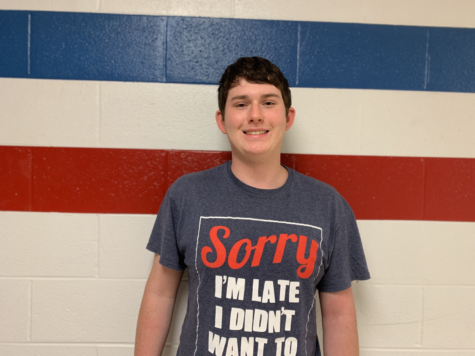Post legislation follow up
May 1, 2021
Chairman of the Illinois Fraternal Order of Police, David Parsons, was kind enough to provide his insight into the current situation, now that Senator Sims’ controversial HB 3653 legislation passed into law (interview on 4/28/2021).
Recently, Senator Elgie Sims, chief author and sponsor of this bail reform legislation, was involved in a violent road rage incident. Allegedly, the perpetrator pulled a gun on Senator Sims while both drivers were traveling on the highway in Sangamon County, near Springfield, Illinois. Sen. Sims said that he (Sims) was “pissed off” that the perpetrator was released with a minuscule bail very soon after the incident. Senator Sims reported he was “traumatized” and having trouble sleeping as a result. Furthermore, Sims stated “By him being released on bail, he’s free to do this again.”
It must, however, be noted that scenarios such as this were included in Senator Sims own bail reform legislation, and the outcome for the perpetrator via HB3653’s parameters was that the perpetrator not to be held and to be immediately released – the same outcome as Senator Sims experienced and railed against.
According to David Parsons, this scenario was exactly why Senator Sims’ own legislation, and other similar legislation, was so dangerous. Parsons stated, “This is exactly what the FOP and other organizations tried to explain to Senator Sims and to his colleagues who voted for this legislation.”
These organizations pointed out that similar ‘bail reform’ in Cook County has already failed and it has resulted in a staggering increase in crime, especially in Chicago.
Despite his complaint of the situation, Sen. Sims and his colleagues continued to pursue additional legislation which has been similarly criticised for emboldening criminals. As an example, the portion of HB 3653 which removed police officer’s legal protections from erroneous and frivolous lawsuits was stricken from HB 3653. Once HB 3653 was passed into law, this portion was simply reintroduced within a different bill for passage this spring. The original removal of this section was done solely to appease the intense public outcry and side step opposition to HB 3653’s passage.
Chairman Parsons warned that the passage of this bill would inevitably lead to officers being hesitant to put themselves in harm’s way, or diffuse dangerous situations, because of a lack of legal protections. Parsons questioned, “Why would officers put themselves in harm’s way, if they could face legal consequences?”
Without the current legal protections, a person could file a slew of erroneous lawsuits against an officer, and the officer would be responsible for all of the legal costs. Parsons also pointed out, “Qualified immunity is not automatic. A judge decides if qualified immunity applies to an officer for that situation.”
Parsons hoped that the politicians would see the danger of this bill and decide to not pass it. For more information regarding qualified immunity, the National FOP has published an informative video explaining the process located below: https://www.facebook.com/GLFOP/videos/448090669750316)
Parsons was also concerned with the recent desire to “decriminalize crime”. A slew of new bills, proposed by Illinois Democrats, that experts warn will victimize those affected by violent crimes, were being pushed through the legislative process. These bills included HB 3447, which would decriminalize narcotics under certain amounts, and significantly lessen penalties for larger amounts of narcotics, HB 3591, which would allow people up to age 26 to be charged, prosecuted, and sentenced as juveniles, and HB 3902 and HB 3913, which would allow sex offenders and child sex offenders to move significantly closer to playgrounds, parks, and schools, as well as significantly reducing and limiting the time that sex offenders are required to register. Parsons would like to ask these politicians what their motivation was to do this. Parsons stated, “I’ve worked heroin and opioid overdoses, they were some of the worst days of my career. I see the families around [the overdosed person], including the children…. It is horrible…. These drugs are killing people and are killing families. These drugs affect everyone.”
Parsons had also worked extensively on the special victims unit as a forensic examiner, which investigates sexual crimes against children. He has investigated horrible crimes against children, and has been extremely frustrated with this recent legislation which removes registration and housing requirements to protect victims and vulnerable populations of children. “You want to weaken those laws now? I just don’t understand”, he said.
While these new proposed laws, along with the passage of HB3653, have been markedly disturbing to some, Parsons was aware of potential legislation being authored to help correct some of the malfeasances of the HB3653 law. However, Parsons stated, “This is the wrong way to pass legislation. You don’t pass a bill and then decide that you will go back and fix it later… The consequences of this bill may take years to fix, if it can be fixed at all.”































